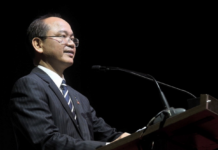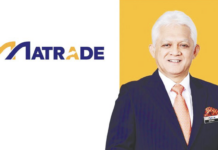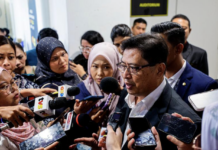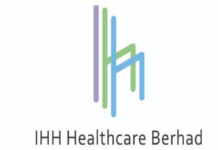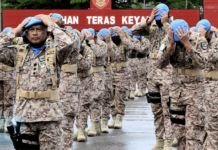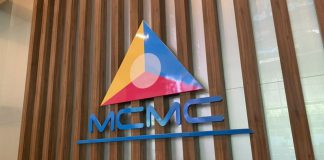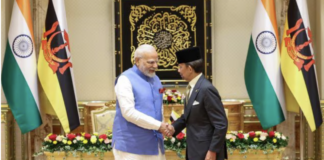KUALA LUMPUR, July 19 — When COVID-19 first started to send cataclysmic waves through the global equity market, glove maker counters were among those that had bucked the trend and skyrocketed due to a sudden surge in demand for disposable rubber gloves from both the medical and non-medical sectors.
Shares of homegrown rubber glove manufacturer, Top Glove Corporation Bhd had spiked more than 400 per cent year-to-date, creating more job opportunities during the pandemic.
However, on Thursday, the United States Customs and Border Protection (US CBP) imposed a detention order on imports from two of its subsidiaries, Top Glove Sdn Bhd and TG Medical Sdn Bhd, placing the companies on its Withhold Release Order (WRO) list.
The move saw Top Glove’s share price plummeting by 10 per cent to RM19.70, although trading was later halted by Bursa Malaysia due to technical issues.
Top Glove stocks were not the only casualties on Thursday’s trading, as its main competitors, Hartalega Holdings Bhd, Supermax Corporation Bhd and Kossan Rubber Industries Bhd also took a hit, which resulted in a total of RM10 billion worth of market capitalisation wiped out from the local bourse in a single day.
Top Glove said the WRO may be related to foreign labour issues which is expected to be resolved within the next two weeks or a month.
This was not the first time the glove maker had been put in a tough position by the US CBP.
In December 2018, the company faced the same predicament after a British daily, The Guardian, reported that its migrant workers were allegedly subjected to forced labour, forced overtime and debt bondage, and had their wages withheld and passports confiscated.
Top Glove, however, denied the allegations, and exports had resumed as usual.
When COVID-19 started to spread across the globe, the US Embassy in Kuala Lumpur tweeted that 65 per cent of medical gloves used by US frontliners had been made in Malaysia.
“Through the production of medical gloves and other medical products, the world relies on Malaysia in the fight against COVID-19,” it said.
However, in June, Britain’s Channel 4 reported that migrant workers were only paid £1.08 an hour (RM5.77) and were forced to work overtime to meet the demand for gloves during the COVID-19 pandemic.
Putting things in the Malaysian context, a wage of RM5.77 per hour is considered as standard payment, even for Malaysians who work as part-timers in the food and beverages industry.
Meanwhile, in the United Kingdom (UK), public service union assistant general secretary Christina McAnea said the UK government had treated its migrant workers in a “shameful way.”
“Migrant workers are in the frontline of the fight against COVID-19 in care homes, propping up a neglected system that would collapse without them.
“Hundreds of thousands of care jobs are unfilled, yet the government is intent on cutting off a source of skilled workers just when the UK needs them the most,” reports quoted her as saying.
In the US, media reports said that migrant workers were either turned away or barred from receiving treatment for COVID-19.
On the contrary, migrant workers in Malaysia — both legal and illegal — had received adequate treatment and care.
It is important to understand that Malaysia is not the only country to deal with issues posed by migrant workers.
It is a universal issue which requires global attention. Cherry picking on the matter would not help solve it.
An equity analyst said that the WRO would only have a temporary impact on Top Glove’s stocks as well as those of other glove makers.
“The foreign investors’ interest in Top Glove’s shares remain sturdy as it holds a huge market share in badly affected nations, especially the US,” she said.
According to Top Glove’s annual report for financial year 2019 (FY2019), the North America region — comprising the US and Canada — accounted for 27 per cent of its sales volume.
It noted that the sales volume to the region leapt by 20.3 per cent in FY2019 compared with FY2018.
As the world’s largest rubber glove manufacturer, Top Glove commands a 26 per cent share of the global market, with a production capacity of 80.2 billion pieces per annum.
As of July 17, the company’s market capitalisation stood at RM62 billion.
Besides rubber gloves, the company had also ventured into manufacturing other essential healthcare products such as the three-ply mask to address the shortage due to the pandemic, condoms, as well as dental care products.
At Friday’s close, the company’s shares on Bursa Malaysia rose 16.65 per cent to close at RM22.98, with a total of 56.56 million shares traded, erasing its losses from the previous day.
On the Singapore Exchange, its shares rebounded 15.87 per cent to settle at S$7.52.
According to research notes, Top Glove is expected to continue its bullish momentum and the uptrend is not expected to end anytime soon.
Top Glove is one of the stocks listed on the FTSE4Good Bursa Malaysia Index which demonstrates its environmental, social and governance (ESG) status, indicating that the stock is in line with the United Nations Sustainable Development Goals (UNSDG).
It was also included as an index component of the Dow Jones Sustainability Index (DJSI) Emerging Markets in September 2019 in recognition of its sustainability practices.
Top Glove had ranked 15th out of 44 healthcare companies, placing it among the top 33 per cent performers across all DJSI indices.
The stock is also listed as a component of the Morgan Stanley Capital International Global Standard Index which rates international companies based on performance in ESG aspects.





